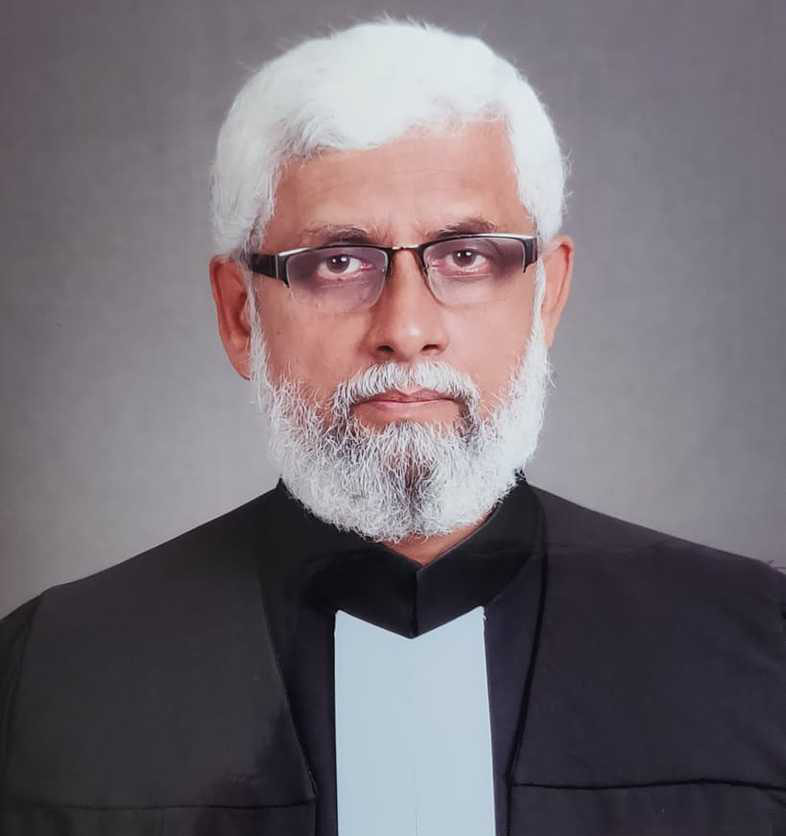
Drink can intoxicate. Drunkenness can mean disaster. The Living Daylights is the film where a James Bond is the hero. The words are from a phrase where one “beats the living daylights out of” someone. How have courts described our Constitution? As a living document, not a dead one.
The Constitution was framed using as a reference the best constitutions around the world and the framers of the Constitution were people of high integrity and great vision. Being a visionary does not necessarily empower or enable you to look into the future standing in the shoes of modern-day Nostradamus. Therefore they made the fatal blunder of not factoring in the possibility of later entrants onto the political scene being of the different mindset, objective and intent than theirs.
The result was constitutional amendments which have changed the structure of the Constitution and diluted many rights which stood conferred on the citizens at inception. The resulting erosion of civil rights of citizens and the lopsided empowering of the executive vis-à-vis citizen’s rights has played havoc with constitutional intent and constitutional objective as originally envisaged contrasted with what at present obtains.
Many writers have lauded the Constitution as originally framed and have been critical of several amendments that have been carried out. It can be argued that the Constitution being a living document it must keep pace with citizens’ aspirations as obtaining from time to time and as society evolves so must the Constitution to keep pace with emerging needs and contingencies not foreseen at the time the Constitution was framed.
This does not take away from the fact that the result of these amendments has in many cases been that sections of citizens who have been at the receiving end of the negative impact of these amendments feel disgruntled. To paraphrase Woodhouse, while some others may have not been actually disgruntled, they are far from gruntled.
I now shift to law as it stood prior to the framing of the Constitution and which continues to be law after the framing of the Constitution. A case in point is the law as regards contract. The law of contract states that when a contract terms are violated, it is a breach of the contract which mandates compensation and compensation is defined as that which would put the party aggrieved by the breach in the position in which he would have been had the breach not been committed.
These are, as has been said so many times earlier, sensitive times and at the drop of a hat people’s sentiments are hurt, whether those be political sentiments, religious sentiments or just plain sentiments. If for example it is pointed out that reservations for certain sections of society when accepted by the citizens at large forming a single body represented by the framers of the Constitution and thereafter, when the Constitution itself was framed and came into operation, widely celebrated, were intended to be for a period of 10 years, and where they are extended and continue to be extended though we are now quite a distance from 1947 – 48, and such extending of something which was planned and proposed as a short-term measure to convert it into an indefinitely perpetuated measure is a breach of that original contract, there is bound to be an uproar from those people of those segments of society who have been benefiting from this reservation and who now would immediately see red.
The result is that what was in effect granted as a temporary measure and is being perpetuated indefinitely cannot be turned back or curtailed without upsetting a large segment of society and causing strife. Political equations make it necessary for politicians who have an eye on electoral fortunes to fight shy of doing anything which might actually be in national interest for fear of upsetting a large segment of society impacting immediately their personal interests. This establishes that politicians today keep their personal interests and party interests above that of the nation, the nation being not a geographic extent of land but the citizens that make up its population.
If we extrapolate we come face-to-face with the thought that compensation for the breach of the original constitutional contract which has resulted in depriving other sections of what would arguably be rightfully theirs entitles them to compensation as would put them in the position in which they would have been had the breach of the original constitutional contract not taken place. De hors the question of how difficult it would be considering that generations have passed, and it would be impossible to right the injustice, the only possible way would be to counterbalance the reservations with reverse reservations in favour of those who have stood deprived in all these decades. This itself is fraught with political consequences which therefore no political party would be interested in even looking seriously at, although in academic discussions this might at first flush sound a very attractive argument.
Similarly another attractive argument would be that where the sovereign constitutional function of providing education for its people of all segments is not delivered on by the executive, those philanthropists who came forward and set up minority educational institutions for the benefit of those who stood deprived by the sovereign executive in implementing its education and reservation policies, in the process discharging that sovereign function which ought to have been delivered on by the sovereign executive, stand entitled to compensation for their efforts by the beneficiary of those efforts which is thus the sovereign executive itself, and for that sovereign executive to deny them their right to admit students of their own choice on the ground that they have been providing aid (read compensation by person deriving benefit of non-gratuitous act) to those educational institutions and therefore general rules as regards admission to educational institutions must be followed including by those (aided) minority institutions detracts from the requirement of compensation for him who has benefited from act of those who have stepped in to provide the missing educational opportunity which the sovereign executive did not and which in fact it deliberately by political fiat denied to a segment, on the basis that it was required to be provided to someone else in a larger measure by taking away a percentage of entitlement from those who otherwise stood entitled.
In the reverse direction it can be argued that extension of reservations itself being something politically approved and the political approvers being representative of the citizens at large and representing them, that itself was a measure which the citizens at large agreed with, through the actions of the elected representatives. This ignores the fact that many a measure which the elected representatives take does not find resonance with large segments of the population as we have for instance seen in recent times in regard to the Farmers Bills as they are euphemistically referred to, their detractors contending that these are actually Corporate Benefit Bills.
It is thus seen that in many cases the steps taken by the political executive are not steps which are supported by large sections of the population and where a political executive is responsive to the opinion of large segments of society, it steps forward (or ought to) to do a course-correction as time moves on but recent trend has been that drunk on a temporal political mandate the political executive demonstrates smug arrogance, proceeding to use physically obstructive measures including the use of police and paramilitary forces to ensure its political will which may be completely at variance with citizens’ will is implemented regardless of whether it is in fact in the national interest or not, on the basis that it “knows what is good for the country”.
Earlier incumbents constituting the political executive were people who were willing to put their personal interests on the back burner and went to the extent of legislating, as in the case of land reforms etc., where their personal landholdings stood substantially diluted for the benefit of society at large and empowering of the underprivileged sections of society as they then were.
Today we find more and more that people who during the initial political activism days did not have much to go on except ideals and political opportunism have managed to preside over financial empires suggesting that contentions of acting in larger social and national interest are mere verbal sleight of hand and not assertions of fact, involving…uh, deviations from the truth.
The judicial establishment which would ordinarily step in when political aberrations take place has also in the last decade been seen to be more and more sympathetic to the executive’s stands and demonstrated greater “judicial restraint” than mandated where non-exercise of such restraint had the capacity to carry adverse consequences for incumbents.
There has been seen selectiveness in political and judicial responses to emerging situations and the clichéd phrase “if you always do what you always did you will always get what you’ve always got” acquires great significance. On the one hand judges cannot legislate and on the other hand they are required to give effect to the law, and the wisdom of what the law is supposed to be, vests with Parliament. The Constitution is supposed to be the supreme law, and any other law must be tested for validity or otherwise on the touchstone of the Constitution. However to borrow from the title of a book, if the Constitution is “defaced and defiled”, the duty of the judicial establishment would be to rise to the occasion and the bat for the primacy of the Constitution as was contracted by the people represented by their representatives who framed the Constitution and not to pay mere lip service to their constitutional duty while allowing a situation of facilitating the testing of laws not against the Constitution as it originally stood but against the presently available Constitution, which it is sometimes alleged has become a caricature of the original.
The stand that the Constitution is a living document and must keep pace with the emerging needs begs the question because the Constitution was meant not to be amended in order to facilitate majoritarian views from finding reflection in its amended provisions but from tempering that majoritarianism to ensure that such majoritarianism did not cut into the equivalence that was built into its original provisions. Any other view would be allowing a breach of our constitutional contract. The ball is squarely in the judicial Courts’ court.
The living document, i.e., the living Constitution cannot be and ought not to be subject to such unrecognisable variations as would beat the living daylights out of the very contract with which diverse ethnic, linguistic, religious, cultural and politically-oriented segments of society came together to form one coherent nation intending greatness: greatness of all and not merely of the numerically larger number, especially when we see that to ensure that the proportionality of that numerical spread remains untouched, and the majority remains a perpetual majority, every conceivable legislative mechanism is being leveraged for demographic reasons, including legislation that impinges on Constitutionally guaranteed rights of belief and conscience.
The law is expected to regulate citizens’ lives and not merely reflect what the largest number of citizens would want disregarding the morality or otherwise of what these wants are, and their adherence or the lack of such adherence to the principles that guided the vision with which the framers of the Constitution acted. Is that why some jurists have opined that any other result would be tantamount to constitutional fraud? For answer, see the writing on the wall, and read between those lines.
Jai Hind.
Shafeeq R. Mahajir is a well-known lawyer based in Hyderabad

